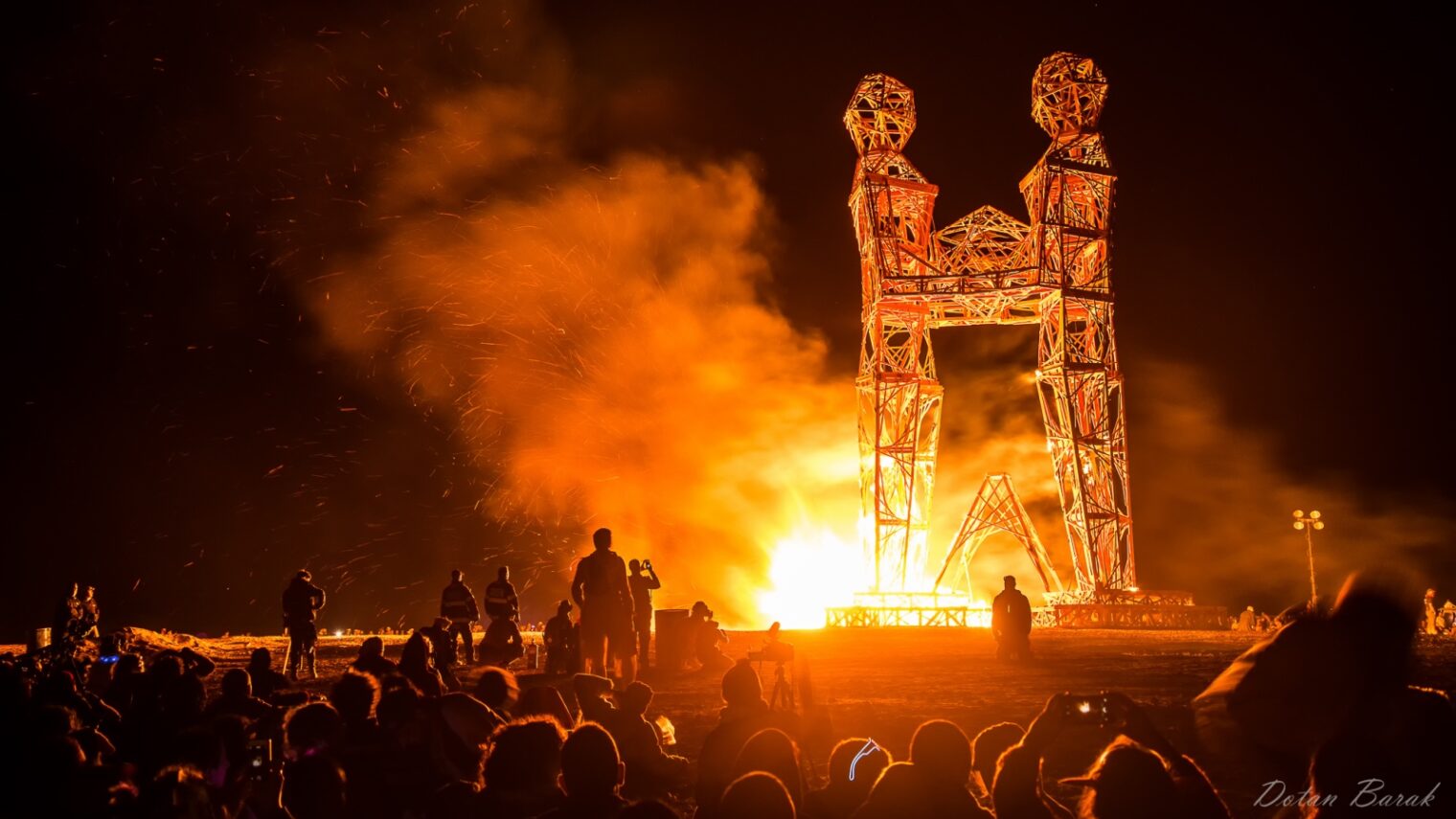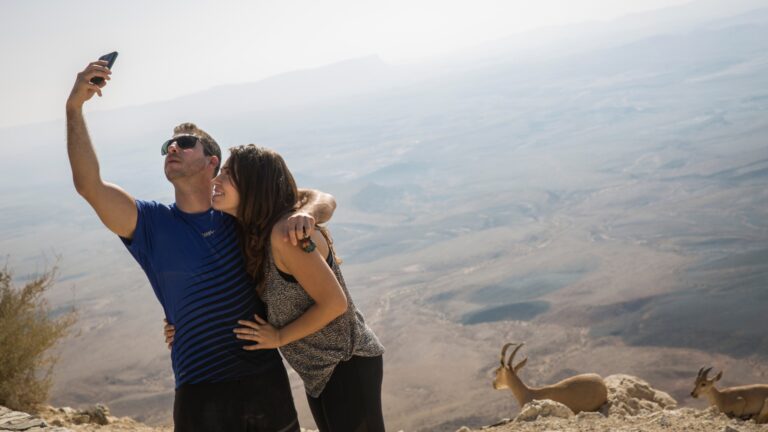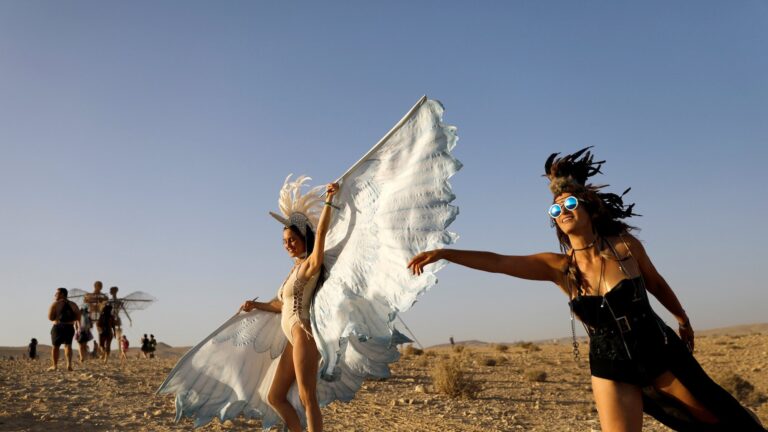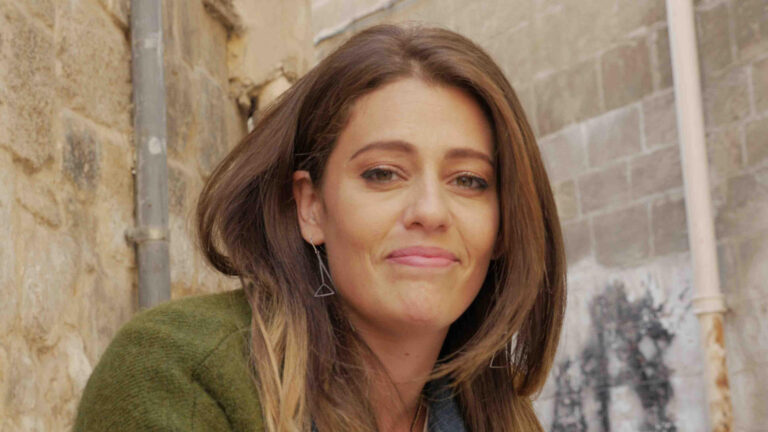If you ask someone who’s experienced Israel’s annual Midburn event to describe it, you’re likely to hear this sort of response: “It’s really hard to put into words! It’s something you have to experience yourself to understand.”
Perhaps the best analogy is that it’s a giant, artsy playground for adults. But there’s much more to it than that.
Now in its fourth year, “Midburn” is the official regional Burning Man event organized annually by the Israeli Burning Man or Midburn community. Like the popular Burning Man festival in Nevada, Midburn is guided by an ideology centered on self-expression, creative freedom, teamwork and community.
It also follows the same structure in terms of production and logistics: Participants voluntarily work roughly six months or more to create a temporary city that hosts the six-day event in the Negev.
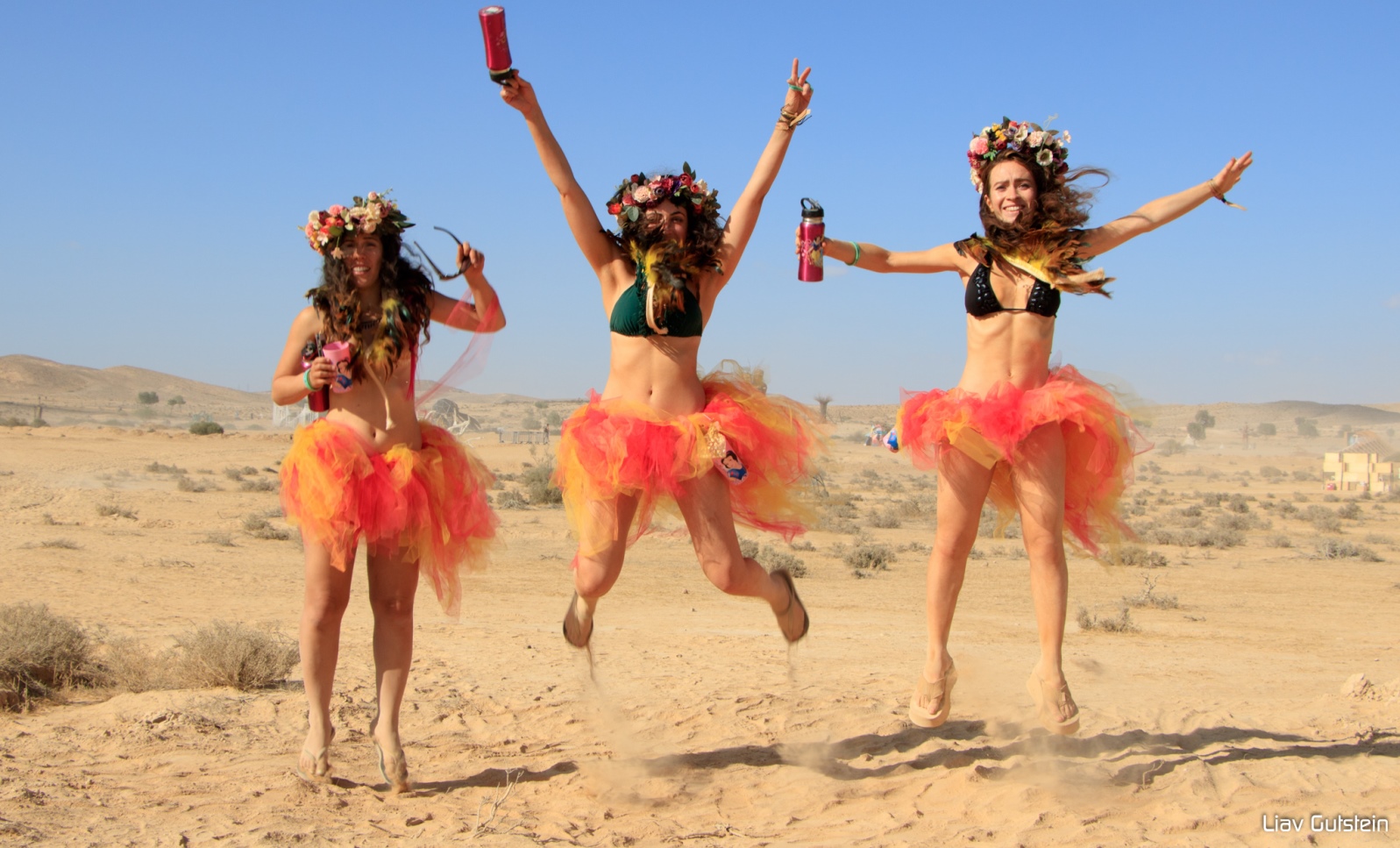
Unlike typical for-profit festivals, Midburn has a nonprofit model and offers art, music and other forms of creative expression throughout its entire half-mile sprawl known as the “playa.”
The bulk of the city consists of “theme camps,” self-organizing groups of approximately 20 to 150 people who offer some form of content, or “gift,” to the playa.
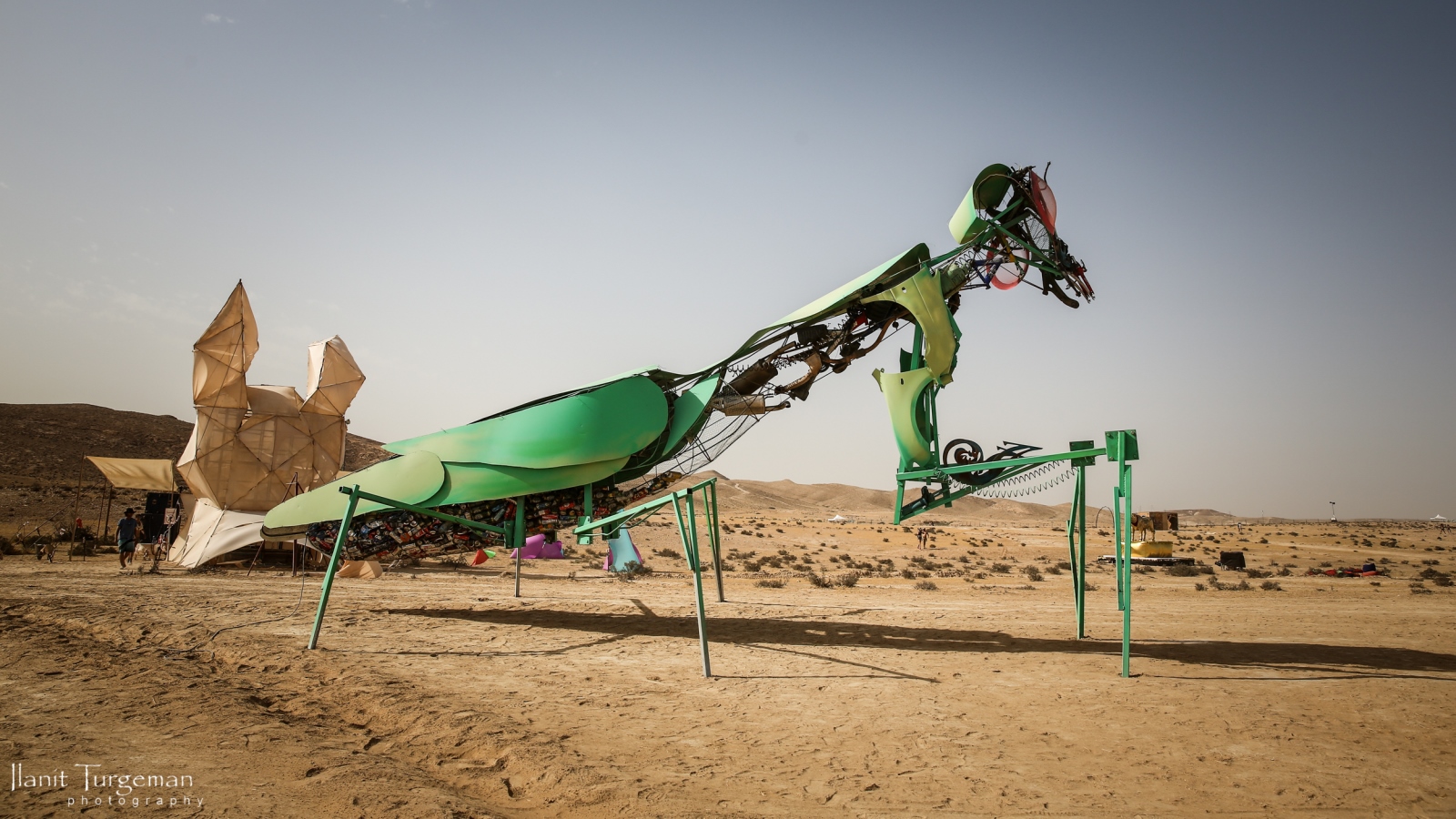
The culture of gifting also sets Midburn apart. No money is exchanged and no vendors are present. Instead, people are expected to bring everything they need for the weeklong experience, and camps are expected to provide gifts. This can range from the practical, like food and cocktails, to the wildly imaginative, like the salon full of life-sized teddy bears that the Shoobi Doobi camp (“teddy bear” in Hebrew) provided in 2016.
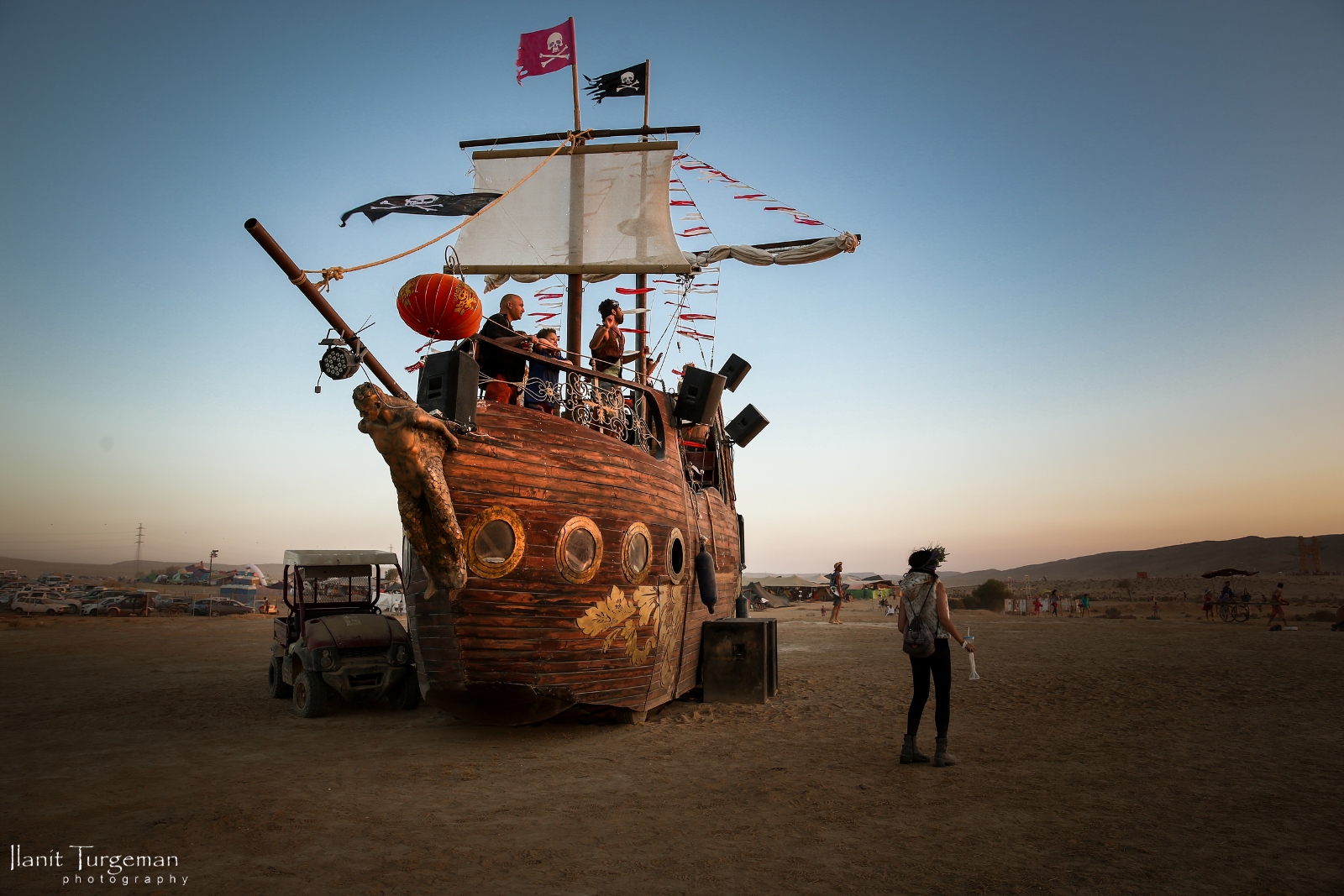
The people
Midburn, a community that is active throughout the year, began taking shape in September 2011 after a small group of Israeli friends returned from the Burning Man festival in Nevada.
Today, Midburn employs five full-time staff whose mission is to support and grow the community and its impact on greater Israeli society throughout the year. But the strength, impact and growth of Midburn are a credit to its members, says Eyal Marcus, a volunteer spokesperson.
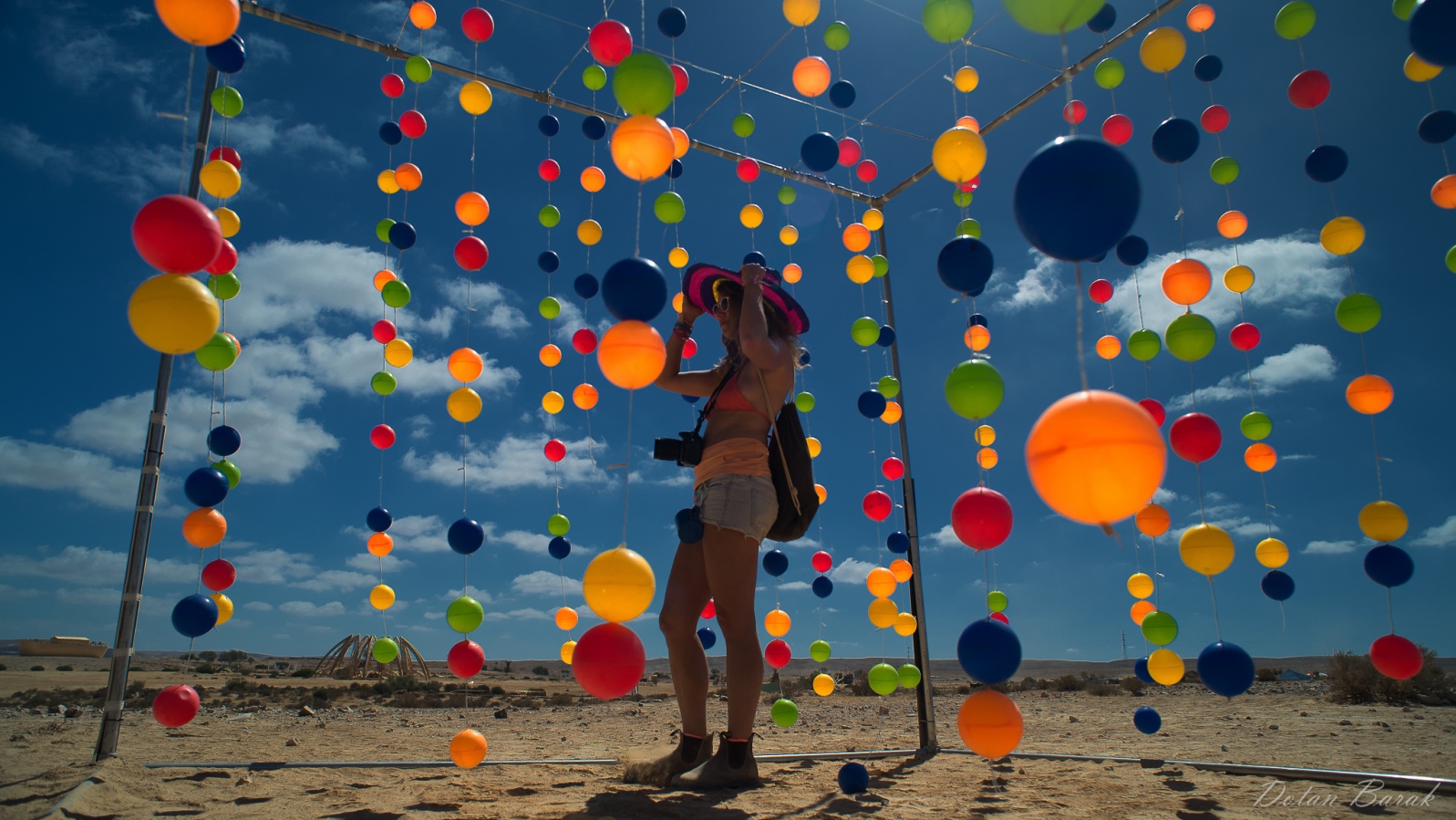
“One-fifth of this year’s participants will be volunteers in the actual production of the event,” Marcus tells ISRAEL21c. “But if you count all the people who are making art installations and building theme camps, then about 70 to 80 percent of the people coming to Midburn are somehow involved in making the event happen.”
The festival has grown at a rapid clip from 3,000 attendees in 2014 to an estimated 10,500 attendees this May. To put that in perspective, AfrikaBurn, the largest regional Burning Man event, started in 2007 and expects 13,000 attendees this year.
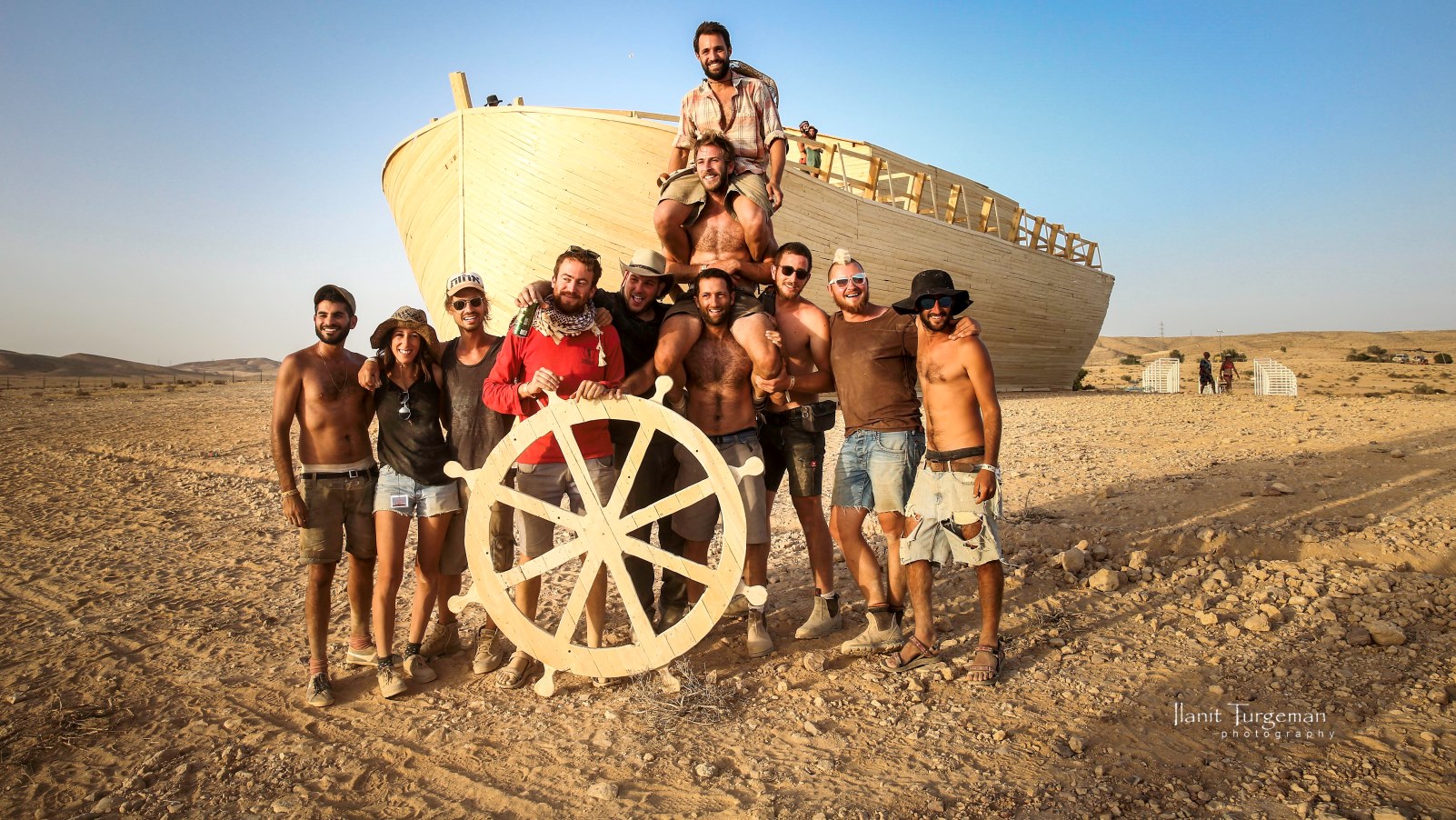
“Israel is the Startup Nation and you can see that in Midburn as well,” Marcus says. “We are very good at dreaming big, being courageous and bringing big things to life fast.”
“The sense of community in Israel is also unprecedented,” he says. “Israelis are very used to the idea of community and working together as a team, which we do in the army.”
Israel’s Middle Eastern-influenced food, art and culture also give Midburn its distinct flavor with theme camps like “Hafla Bafla” offering Bedouin-style hospitality and “Mizrimonim” gifting the distinctly Israeli cocktail of Arak and pomegranate juice.
‘Burners’ and default life
Midburn participants often identify as “burners,” a term they share with the international Burning Man community. Burners come from all walks of life.
“I think a lot of people assume that [burners] are a bunch of lazy stoners,” says Avital Faibis, 31, who launched the “Radio” camp, which broadcasts Midburn’s daily radio programming throughout the event. “But you can’t be a lazy stoner when it comes to Midburn — it’s too much work,” she laughs.
Among the 10,500 people who are expected at Midburn in May, nearly 1,000 of them are coming from abroad. And while the majority of attendees are in their 20s and 30s, the oldest last year was 83. The event is family-friendly, with several theme camps of parents and children. Midburn even offers a special ticket rate for children under 14.
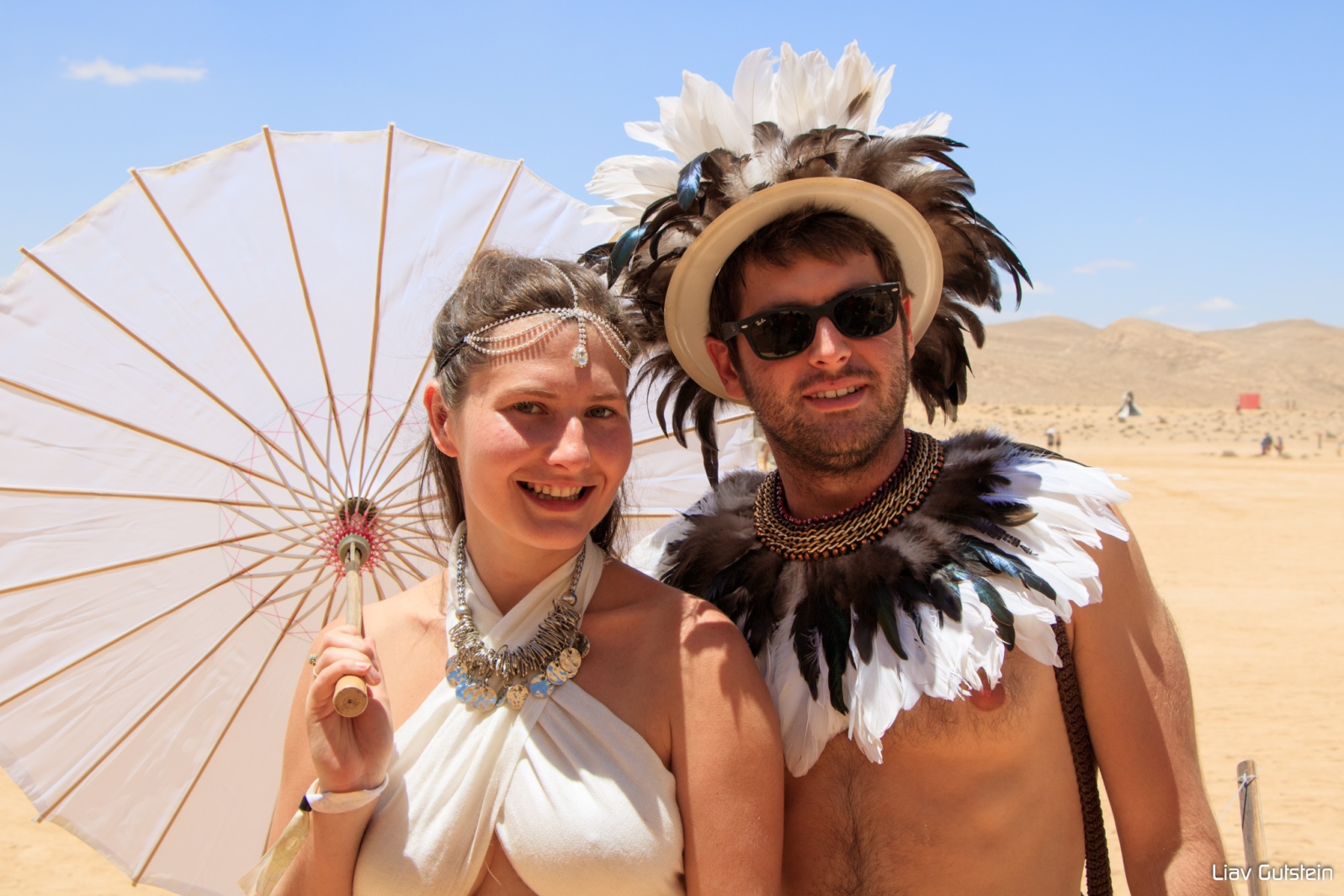
Midburn often resonates with attendees long after the event has ended. After a little readjustment, burners begin or continue to incorporate the Midburn ethos into what they call “default” life.
“Midburn changed my entire life through community, inspiration and motivation, and gave me my voice and self-expression,” says Kalia Pissaro, 28, who moved to Israel from her native London seven years ago. “It also gave me something of a family that I never had since I grew up at a boarding school.”
Pissaro credits Midburn for inspiring her to launch her own namesake custom clothing line.
In his default life, Chen Raviv, 27, is the founder and CEO of Change A World, a nonprofit that helps university students develop health innovations for their local communities. Following his first Midburn festival last year, he’s now cofounding a theme camp with the mission to bring art to communities around Israel.
“We want to build a community for the whole year, not just for Midburn; Midburn is an excuse,” says Raviv. “The whole camp is building the art ourselves, and once the festival is over, we’ll use it to inspire creativity in [Israel’s] periphery.”
And Midburn is there to help. Earlier this year, Midburn’s non-profit operation launched an accelerator program to support social entrepreneurs like Raviv who want to make a lasting impact beyond their festival experience.
“The reason I’m volunteering my time and soul and effort for so many hours every week, all year long [to Midburn] is because of the impact on Israeli society,” says Eyal Marcus. “The event itself is amazing, but beyond that, a lot of people want to see the social change happen.”
For more information, click here.




